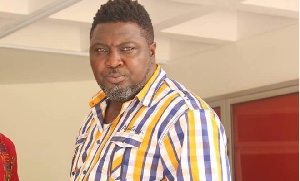A number of industry players have raised concerns about the monotony of the current crop of music in Ghana.
The assertions are that majority of the musicians are recording at the same tempo and style they consider trendy, and that limits the uniqueness in them.
Music producer and founder of the Last Two Music Group, Edward Nana Poku, popularly known as Hammer has said he will not blame musicians for the development.
According to him, these musicians are compelled by television stations and DJs to tow that line since they will not get their songs played if they decide to do songs their way.
“It has a cause. The root cause is that the songs DSTV plays, a majority are Nigerian. So obviously, whoever watches knows Nigerian music is trendy. It is forcing the other countries to play their music like the Nigerian music. I’m citing DSTV because it is the only television station that crosses over all of Africa. If you check their playlist, it’s just about five artistes [who get their songs played] but the Nigerian music is constantly played,” he said on Happy FM’s Showbiz Extra.
“Now the ordinary musician in Ghana is thinking, ‘the groove has dominated; how do I make a hit? DJs are all playing that kind of music; I have to play like this’. So the root cause is deeper than you think. The musicians are being forced to play a particular kind of music,” he added.
Da’ Hammer noted that music has become an avenue for making money. For this reason, majority of the artistes would produce what people consume.
“These guys are very talented. But they are scared no one would mind them should they play what they want to. So everybody is conforming to what is happening. I don’t blame the musicians. You can’t make it to the DJ’s playlist if you don’t have a dance Nigerian groove,” he indicated.
Adding, “Apart from the fact that it is art, it’s also business. If someone invests in your music, he expects returns; if you don’t want to make money, then you are not serious. So if you see a pattern and that pattern is making money for some people, obviously they will get into that pattern.”
He urged DJs to play a variety of songs to encourage musicians to produce songs which will bring out the best in them.
“My advice is that the DJs have the strength, they have the biggest medium for the widest audience… I plead with them to tell the artistes to be themselves and that whatever style they come up with, they will play. Nigerian music would just vanish,” Hammer said.
Music of Friday, 22 January 2016
Source: abrantepa.com

















